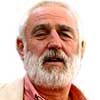Five of the books mentioned here were featured in a write-up in the September issue of London Review of Books by Indian essayist and novelist, Pankaj Mishra, 48, author of the recent book, The Age of Anger: a History of the Present. He has a recent essay on the threat to India’s political status as the largest democracy in the world. The latter was a strong criticism of the current Indian leader, Hindu nationalist Narendra Modi, 67, who is rapidly moving toward a new populism. And at this point, populism good or bad, is where this article comes in. In the aforementioned review Pankaj Mishra is emphatic in his severe comments on the five authors and their elitist liberal political line, in Britain and some of the rest of Europe. The collective warning in those books is against the deep changes in modern society, precipitated by immigration and religion, with a dash of terrorism, of course. The view, with some variations, is strongly conservative, preserving the privileges of liberal society.
However, the idea is not to dwell so much on Mishra’s views and targets, but more on the cautionary concerns of all of the writers, critics and authors, in their views of the rise of populism and the threatened demise of liberal democracy. We are now a long way, a quarter of a century, from Francis Fukuyama’s The End of History and the Last Man (1992), in which the US academic celebrated the end of the Cold War, the defeat of Communism (this first explored in his 1989 essay) and he hailed the advent of a world that would develop Western liberal democracy.
Within a decade we had the 9/11 terror attacks (2001), liberal democracy was under violent threat from a mix of religion and terrorism, and a critical threat emerged in calls for change through populism. Then came what the academic cliché factories call “identity politics” that make little reference to populism, but hold on to the image of its often superficial statements of great aims, like nationalism.
This line, now also under fire, refers to political positions based on the interests and perspectives of social groups, religions, civic organisations, etc., through which people have begun to move away from the traditional political parties that carried a mixed membership in search of leadership.
One of the five books on the list (Mark Lilla’s The Once and Future Liberal: After Identity Politics) aims to look beyond the experience of liberal democracy, toward the end of “identity politics” and then, what next? There is no answer of course, and some of the authors will not be around to experience the sequel. For the time being, this is a variation on populism as we see it from the River Plate.
It is interesting to think of Europe coming through wars and different styles of hegemony on its own road to a partial populism that is sprouting in several states, in contrast with what much of South America has lived through in the past century. The continent has never had liberal democracies of any strength and kept populism of sorts as a backbone to local constitutional systems that were called democracies. In fact, we have seen rises and falls in the populist experiment, most recently described by a British resident and Argentine academic, founder of his own Communist party and sympathiser of populism as a valid political form. The book by Ernesto Laclau (1935-2014), On Populist Reason (2005), took him to the rank of political advisor to Cristina Fernández de Kirchner and her husband, Néstor Kirchner.
This style in politics has not had lasting success or permanence in power in Argentina. In our own political model of populism, we do not know if we want to look back on our extended failings or stick with our short-termist success ahead. The social doubting thought of the future has repeatedly opened the door to populism, in various shades of nationalism, and slammed shut the door on imitation liberal democracy. Hence we have not learned from the past or attempted change for the future. We still don’t know if we have worked toward any form of change or should settle for our wishy-washy populism, civilian or military.
Designing a vision of change is not a simple matter. We are not sure of the kind of democracy we want, or whether or not a long-term form of populism is something we could live with, corruption and all, mainly perhaps because in Argentina we have never tried anything for the medium term. Hence, the surprise was even greater to have attention drawn (by elite liberalism, of course) to deep change in Europe, and in Britain especially, which could be on the way.
The five books, authors and publishers, are listed as they were in London.
Review of Books:
Edward Luce, The Retreat of Western Liberalism (Little, Brown, London); Bill Emmott, The Fate of the West: The Battle to Save the World’s Most Successful Political Idea (Economist, London); David Goodhart, The Road to Somewhere: The Populist Revolt and the Future of Politics (Hurst, London); Mark Lilla, The Once and Future Liberal: After Identity Politics (Harper, London); Douglas Murray, The Strange Death of Europe: Immigration, Identity, Islam (Bloomsbury, London).
And two more not on that list, because they strike out to a different pattern of change: Robert J. Gordon, The Rise and Fall of American Growth: The US Standard of Living since the Civil War (Princeton University Press); William N. Goetzmann, Money Changes Everything: How Finance Made Civilization Possible (Princeton University Press).
(*) Former editor of the Buenos Aires Herald (1994-2007)






















Comments